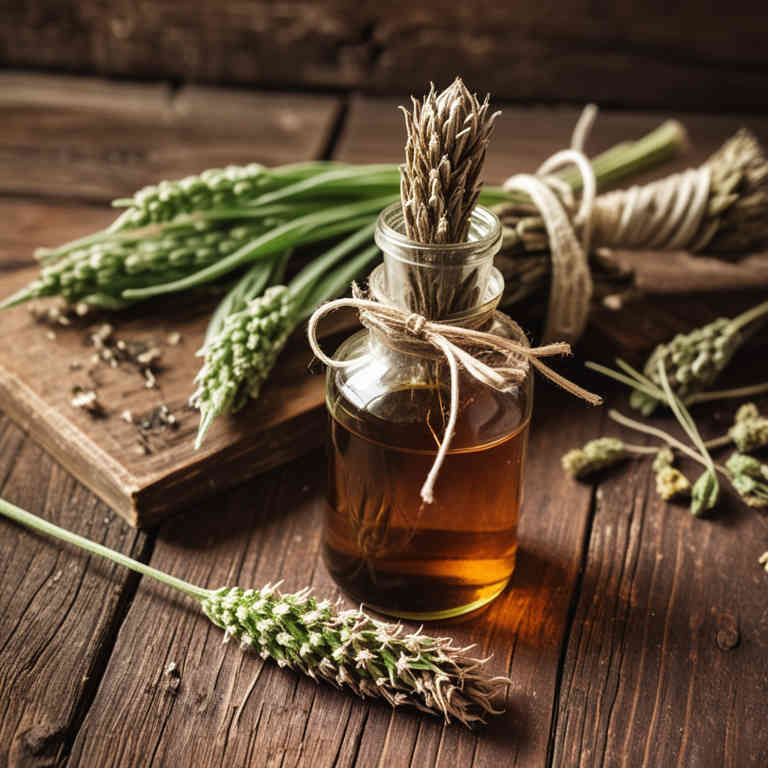Plantago major tincture for medicinal use

Plantago major tincture is a concentrated liquid extract made from the leaves of the common plantain plant.
It is prepared by soaking the dried leaves in alcohol to extract their medicinal properties. This tincture is widely used in herbalism for its anti-inflammatory, astringent, and wound-healing properties. It is often applied topically to treat skin irritations, insect bites, and minor wounds.
In some cases, it may also be taken internally to support digestive health and reduce inflammation.
Uses
Plantago major tincture has been used to treat various ailments for centuries, with roots in traditional herbal medicine.
Historically, it was valued for its soothing effects on the respiratory and digestive systems, often used to alleviate coughs, inflammation, and gastrointestinal discomfort. In traditional practices, it was also applied topically to wounds and skin irritations due to its anti-inflammatory and healing properties. Modern applications continue to recognize its benefits, with the tincture being used in alternative medicine for its potential to support respiratory health and reduce inflammation.
Today, it is still sought after for its natural healing properties and is often incorporated into holistic health regimens.
Benefits
Plantago major tincture has health benefits such as reducing inflammation, supporting respiratory health, and promoting wound healing.
It is commonly used to alleviate symptoms of coughs, sore throats, and skin irritations due to its anti-inflammatory and antimicrobial properties. The tincture is derived from the leaves of the plantain plant, which has been traditionally used in herbal medicine for centuries. It may also aid in digestion and help soothe gastrointestinal discomfort.
Overall, Plantago major tincture is a versatile herbal remedy with a range of potential therapeutic uses.
Constituents
Plantago major tincture active constituents include aucubin, allantoin, polysaccharides, and mucilage.
These compounds contribute to its traditional use in supporting respiratory and digestive health. Aucubin has mild antimicrobial properties, while allantoin promotes cell regeneration and has soothing effects. Polysaccharides may enhance immune function, and mucilage acts as a demulcent to coat and protect mucous membranes.
This tincture is often used to alleviate inflammation, coughs, and skin irritations.
Preparation
To make Plantago major tincture, first gather fresh or dried Plantago major leaves and wash them thoroughly.
Next, place the leaves in a clean glass jar and cover them completely with a high-proof alcohol such as vodka or grain alcohol. Seal the jar and let it sit in a dark, cool place for 4 to 6 weeks, shaking it gently every few days. After the steeping period, strain the liquid through a cheesecloth or fine mesh strainer to remove the plant material.
Finally, store the tincture in a dark glass bottle in a cool, dry place, and label it with the date and contents for future reference.
Side Effects
Plantago major tincture may lead to gastrointestinal discomfort, including nausea, vomiting, and diarrhea, especially with high doses.
It can also cause allergic reactions in individuals sensitive to the plant, manifesting as skin rashes, itching, or difficulty breathing. Long-term use might interfere with blood sugar levels, making it unsuitable for people with diabetes. Additionally, it may interact with certain medications, such as blood thinners, increasing the risk of bleeding.
It is important to consult a healthcare professional before using this preparation, particularly for those with pre-existing medical conditions.